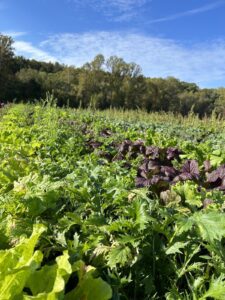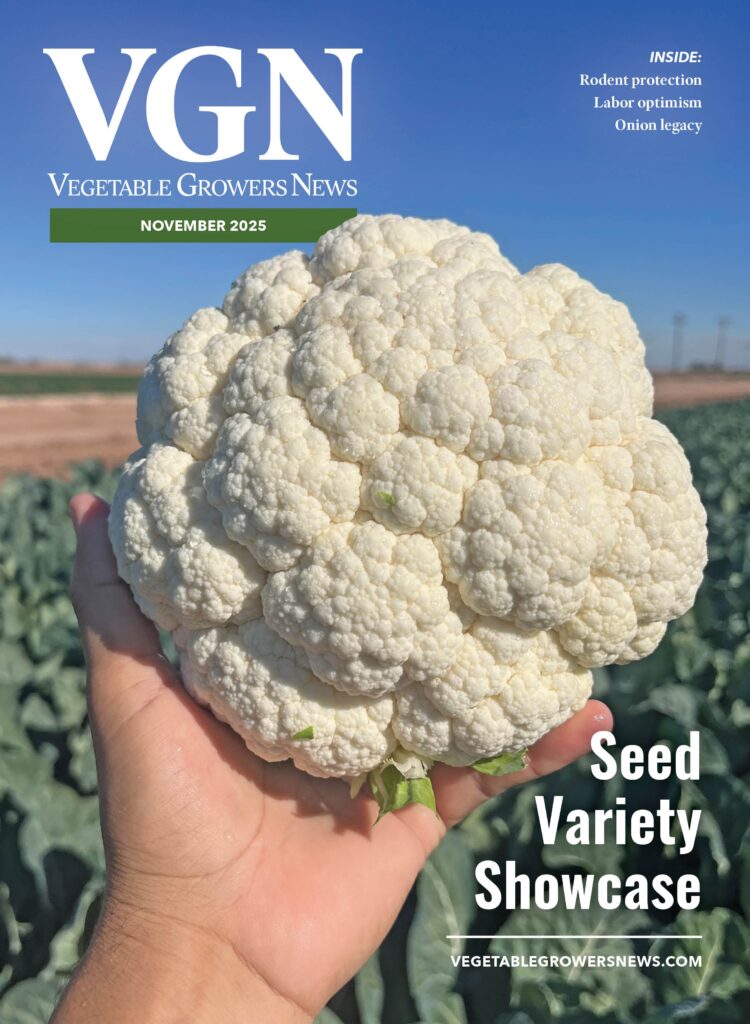
May 19, 2025H-2A hiring strategies support Bellair Farms
Ask anyone in agriculture what keeps them up at night, and labor is going to come up early in the conversation. For years, Bellair Farm in Central Virginia lived that reality — trying to manage a diversified operation with a revolving door of seasonal workers, local hires and idealistic interns. Every season felt like starting over. Training from scratch. Losing key help halfway through harvest. Hoping the weather would cooperate, but also that the team would show up. It was exhausting.
That changed when the Bellair Farm team partnered with másLabor to restructure the farm’s labor model using the H-2A visa program. With másLabor’s guidance, they moved from patchwork staffing to a reliable, professional workforce that shows up trained and ready to work.

Bellair Farm retooled their structure, dividing operations into livestock, produce and market staffing. Market roles remain seasonal and often local. But the backbone of the farm, planting, harvesting and tending livestock now rests on a team of H-2A workers who return year after year. The result? Fewer disruptions, a stronger team culture and more time spent farming instead of recruiting and retraining.
másLabor made the transition possible. They didn’t just provide forms and a checklist. They walked the Bellair Farm team through every stage — visa processing, housing requirements, compliance. They made a complex system manageable and allowed the farm to focus on what it does best.
“We deal with the government agencies and the highly nuanced regulations so our employers can focus on running their businesses,” said Chris Ball, CEO of másLabor. “Our job is to cut through the bureaucracy and deliver results.”
And yes, the system is complex. H-2A is a federal, nonimmigrant seasonal visa program with plenty of red tape. Regulations evolve, requirements shift and there are real stakes for getting it wrong. That’s why having a partner like másLabor matters. They know the terrain, they’ve worked with thousands of farms and they understand how to match policy to reality on the ground.
What Bellair Farm discovered is that H-2A isn’t just about filling jobs; it’s about building stability. With the right people in place, a farm can plan, grow and reinvest. It’s not just that the crew works hard. The workers bring skill, continuity and professionalism. They know the terrain. They know the systems. And because they return each year, they’ve become part of the farm’s rhythm — and part of its extended family. We saw the same story during a visit to long-time másLabor client Barboursville Vineyards, where viticulturist Fernando Franco has been responsible for their 176 acres of vines since 1998.
He put it best, “I’m just the orchestrator. But I need the musicians to play the instrument.”
For him, the H-2A team is essential not just as labor but as the foundation of a successful business season after season.
There’s also a real economic story here. According to estimates from the Georgia Budget and Policy Institute, each H-2A worker contributes between $1,300 and $1,700 per month to the local economy. That includes groceries, transportation, equipment and more. For a farm, the ability to reduce turnover and cut retraining costs can easily save tens of thousands of dollars annually. That savings goes back into operations — whether it’s upgrading fencing, investing in irrigation or supporting full-time local staff.

Yes, farms still must contend with rising costs, including the Adverse Effect Wage Rate (AEWR), which sets the minimum wage for H-2A workers by state. It’s something every grower watches closely. But at Bellair Farm, their view is simple: Take care of your people, and they’ll take care of the farm. Fair wages and stable employment aren’t simply good ethics — they’re good business.
That mindset is part of what makes the H-2A program so effective when done right. It aligns the needs of farms with the dignity of work, and it allows operations like Bellair Farm to stay productive and competitive in a tough market. And just as importantly, it helps build community. Bellair Farm’s H-2A team has friends at nearby farms like Blenheim Vineyards, another másLabor client. They’re integrated. They’re present. They’ve helped bring a new sense of community not just to the farm but also to the broader agricultural network in the region.
That’s the story most people need to hear. Because when we talk about food systems, supply chains or rural economies, we can’t forget the people who make it all happen. That includes the farmers — but also the workers who plant, pick, prune and pack. When farmers have the support, they need to bring in skilled help legally and responsibly, so the entire system works better.
There’s a lesson in that — for farms, for policymakers, and for anyone who cares about where their food comes from. Behind every harvest is a team, and behind a good team is a good system that brings the right people together, season after season.
By Alexa Franco, másLabor Senior Case Manager
Photos courtesy of másLabor
















